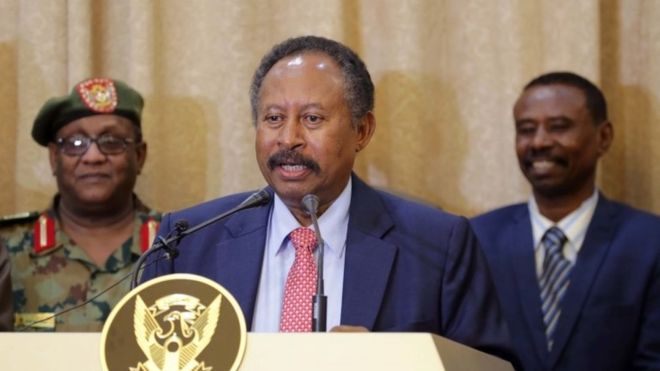Sudan’s new prime minister has said that the country needs up to $10 billion in foreign aid to rebuild it’s economy.
Abdalla Hamdok says the money will be needed over the next two years to help fix an economy that is almost collapsing.
Hamdok was sworn in as prime minister on Wednesday. He has vowed to tackle conflict and build a stronger economy.
As leader of the transitional government he has the task of restoring peace as well and helping to return the country to civilian rule.
The renowned economist told journalists shortly after his swearing in that “The revolution’s deep-rooted slogan, ‘freedom, peace and justice,’ will form the programme of the transitional period.”
“The government’s top priorities are to stop the war, build sustainable peace, address the severe economic crisis and build a balanced foreign policy,” he told reporters in Khartoum.
Changing the economy
In a separate interview with a foreign media, Reuters quotes him as saying “We want to take the Sudanese economy from an economy based on consumption and imports to a productive economy, and stop exporting products such as livestock and agriculture as raw materials.
Instead, we will aim to process them so as to create added value.”
Hamdok was appointment and sworn in after General Abdel Fattah al-Burhan, the outgoing head of the military council, also took over as leader of the new Sovereign Council.
The new council will run the country for three years until an election after decades of autocratic rule.
It replaces the Transitional Military Council that Burhan headed earlier.
Lt-Gen Burhan will be in charge of the Sovereign Council for the first 21 months. A civilian will then take over until elections in 2022.
These are part of a planned 39-month long transition to democracy after former leader, Omar al-Bashir was ousted in April.
Sudan’s economic challenges triggered protests that led to the toppling of former leader, al-Bashir.
Source: Africafeeds.com


